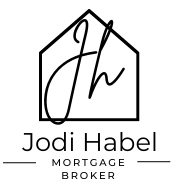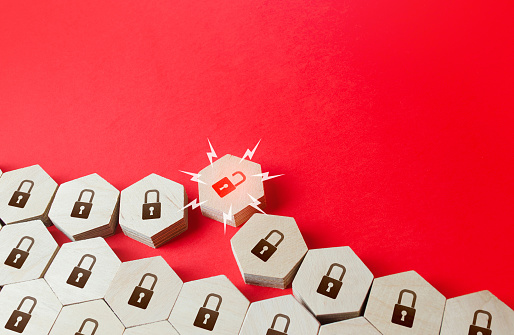Buying a home is one of the biggest purchases you will ever make. For many Canadians, it’s also their first major investment. When you apply for a mortgage, the lender will review your finances and the value of your home to determine whether you can afford it. Some types of mortgages are insurable by Canada Mortgage and Housing Corporation (CMHC), while others are not – this means that CMHC will insure some mortgages but not others. The main difference between these two types of mortgages lies in whether they’re backed by government-backed securities or not. If your mortgage meets certain criteria, then it qualifies as an insured mortgage and can be purchased through any financial institution that offers them. If not, then there may be restrictions on where you can buy your new home or how much money is available to invest in its purchase price. To avoid any confusion on the matter, let’s take a closer look at insured vs. uninsured mortgages.
Insured Mortgages
Let’s first start with understanding what an insured mortgage is. An insured mortgage is a loan that is guaranteed by the Canadian Mortgage and Housing Corporation (CMHC) or a private insurer such as Sagen or Canada Guaranty. There is a premium that is payable and tiered based on your down payment amount. For example, if you have a 5% down payment towards the purchase of a $450,000 home the mortgage default insurance premium that will be added on to your mortgage is 4% of the mortgage amount totalling $17,100.00. There is also PST (8%) that is payable on this premium and forms part of your closing costs which equals $1,368.00. ThThis means that if you default on your mortgage the lender would not suffer any losses for your loan as the insurer covers any shortfalls.
The mortgage needs to be Insured if you have less than 20% down payment towards your purchase price.
You can use an insured mortgage to buy a home
Uninsurable Mortgages
It’s possible for a mortgage to be “uninsurable” if it doesn’t meet the property type or occupancy guidelines, or if it has a high risk of default. Uninsurable mortgages include self-employed mortgages and mortgages with low down payments (less than 20%). Also known as non-qualified mortgages, these are private deals that are not insured by the Canada Mortgage and Housing Corporation (CMHC).
- Eligible Mortgages
An eligible mortgage is one that meets all of the requirements set out by CMHC so that you can get insured through them. These requirements are based on:
- Property Type: The type of building where you’ll live—single family detached home, condo apartment/condominium townhouse complex etc.
- Property Location: Whether you’re buying a house in an urban center like Toronto or Vancouver; suburban area outside these cities; or rural area anywhere else across Canada.
- Occupancy Status: How many people will live in this property at any given time? A single family detached home could accommodate two people comfortably; however if there were three children under age 18 living there full time then it would no longer be considered “single.”
You can use an uninsured mortgage to refinance or consolidate debt on your home.
What is the Cost of Mortgage Insurance?
The cost of mortgage insurance varies depending on a number of factors, including:
- The size of the mortgage. Mortgages with larger balances are more expensive to insure because of their greater risk profile.
- The amortization period (loan term). A longer-term loan may be more heavily weighted for coverage purposes than a shorter-term one because it’s considered less risky by lenders.
- Down payment amount and credit score. Lenders will typically charge higher premiums for borrowers who put down less than 20 percent or have poor credit scores, even if these borrowers don’t qualify for PMI in the first place.
Do I Need Mortgage Insurance?
If you’re buying a home with less than a 20% down payment, it’s likely that your mortgage lender will require you to have an insurable mortgage. Mortgage insurance is a form of coverage that protects the lender against losses in case you default on your loan.
If you take out a mortgage loan with less than 20% down, the bank will require you to buy private mortgage insurance (PMI). This type of insurance can be costly and lasts for as long as 30 years after closing on your home purchase. PMI payments are added to the monthly cost of owning your property, so they add up quickly. If possible, look into different types of loans—like conforming FHA loans—to avoid paying these additional costs in perpetuity.
What Can I Do if I Cannot Get an Insured Mortgage?
If you are unable to get an insurable mortgage, there are still ways to buy a home.
- Consider a higher interest rate mortgage: The rates on non-insured mortgages tend to be higher than those on insured products. But this may not matter if you plan to hold your home for less than five years or so and can afford the higher monthly payment.
- Consider a slightly smaller down payment: If you have good credit, it’s possible that some lenders will allow you to make an uninsured down payment as small as 5% of the purchase price (or even less).
- Consider shorter terms: Many lenders offer fixed-term mortgages with terms of up to 10 years instead of the traditional 25-year term with monthly payments that increase every year (known as amortization periods). You’ll pay more interest over time with these loans, but they make sense if being locked into payments at a certain level for another decade is appealing or necessary for personal reasons (such as having other debts).
What Is A Default Insured Mortgage?
If you have a mortgage loan with no down payment, or less than 20% of the purchase price, you will need to purchase mortgage default insurance. Mortgage default insurance protects the lender in case of foreclosure.
Default insured mortgages are typically loans where there’s less than 20% equity in your property. If this describes your situation, it’s likely that you will require mortgage default insurance from CMHC or Genworth Canada to protect your lender in case of foreclosure.
Now you know the distinction between uninsured vs. insured mortgages. Mortgage insurance is a valuable financial tool that can protect you from unexpected mortgage payments. While it’s not right for every Canadian homeowner, it’s important to understand the ins and outs of this type of insurance before making a decision on whether or not it’s right for you. If you have any more questions or concerns regarding your mortgage journey in Canada, don’t hesitate to get in touch with me today.

